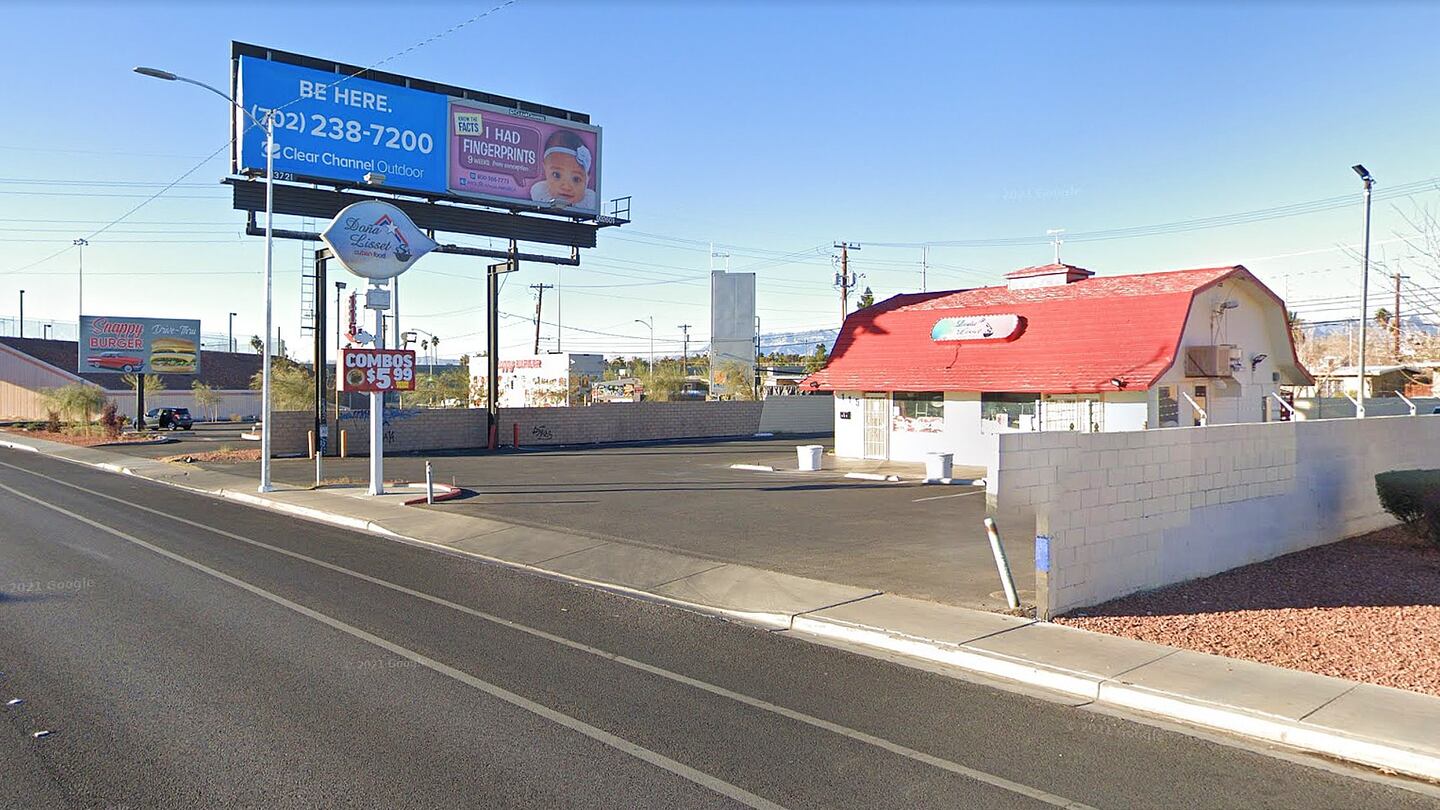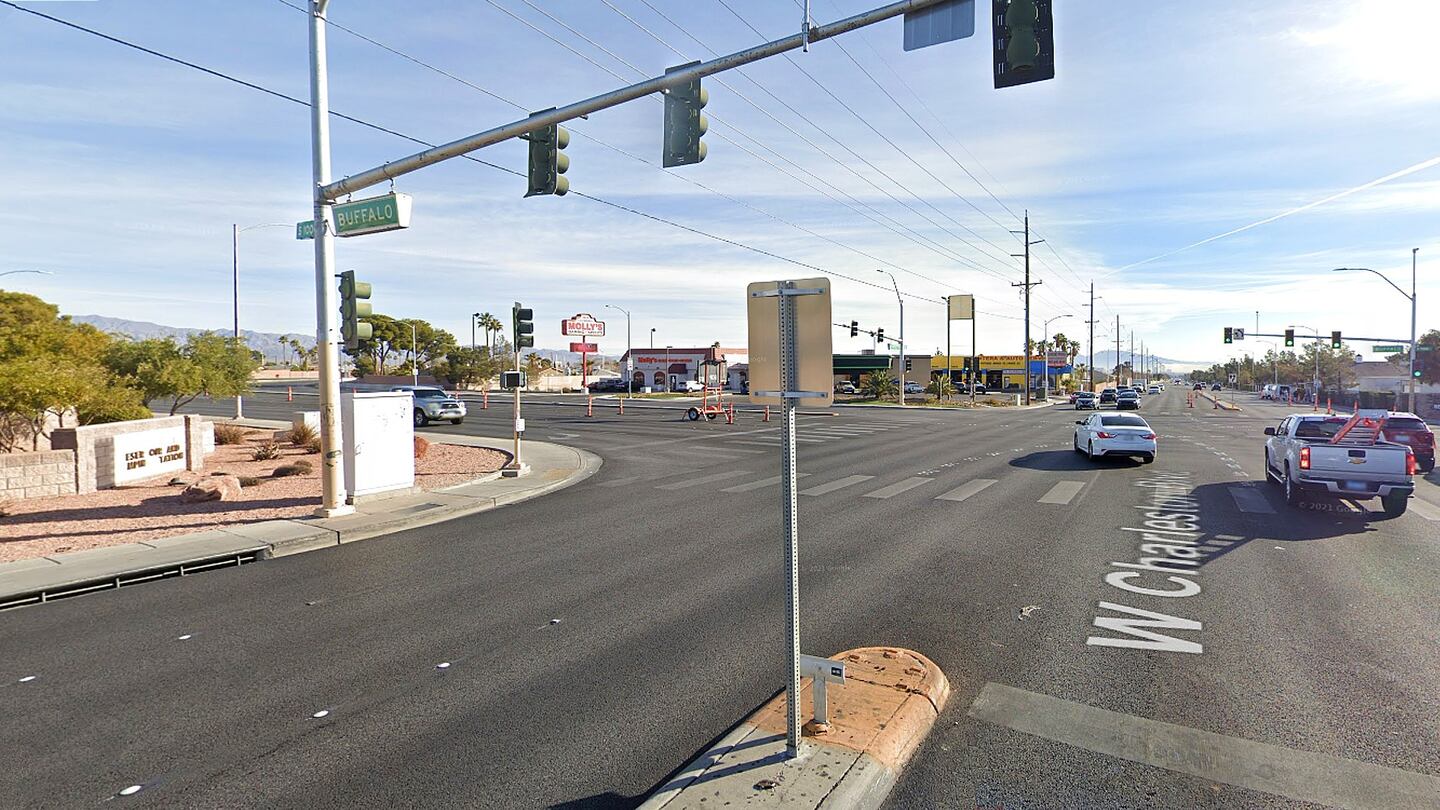LAS VEGAS — A man who died in 1993 has been identified through genetic genealogy as the alleged killer of a 16-year-old Las Vegas girl abducted from outside a Dairy Queen in 1979.
The body of Kim Bryant was found in a shallow desert grave nearly a month later, on Feb. 20, 1979. She had been raped and beaten to death with a rock.
On Monday, more than 42 years after Bryant was slain, Las Vegas cold case detectives named Johnny Blake Peterson as the killer. Peterson, who is deceased, was 19 years old at the time Bryant was killed.
“Detectives now believe Peterson abducted Bryant the day she went missing, then sexually assaulted and killed her,” authorities said in a statement. “Peterson died in January 1993, but his identification as the suspect serves as a reminder to the families of murder victims that the LVMPD will not stop investigating these crimes, no matter how much time has passed.”
Lt. Ray Spencer, who heads the homicide unit of the Las Vegas Metro Police Department, said Monday that the case was solved using forensic-grade genome sequencing, a technique used by Texas-based Othram Inc.
Othram lab technicians were able to extract enough DNA from what was found on Bryant’s body to create a full genetic profile. They then used public genealogy databases to build the alleged killer’s family tree.
Las Vegas’ own forensics lab conducted further testing to confirm the findings.
“Nothing frustrates me more than when we’re not able to solve a case,” Spencer said during a news conference Monday. “Nothing’s going to make the pain go away, but at least the family has some closure. I want the community to know that — that we never stop working these cases and never stop following up on every lead.”
Spencer said that Bryant vanished the afternoon of Friday, Jan. 26, 1979, near the campus of Western High School, where she had registered for the next year’s classes. She and a friend crossed Decatur Boulevard to the Dairy Queen, which was still not open for the day but was a hangout spot for students.
It was around 10 a.m. when Bryant was last seen alive.
According to contemporary news reports, no one saw anything suspicious, despite the abduction taking place in broad daylight on one of Las Vegas’ busiest roadways.
“Four days later, Kim’s boyfriend contacted detectives and said that Kim had called him that morning that she went missing, asking him to pick her up at the Dairy Queen which is located directly across the street from Western High School,” Spencer said. “Kim’s boyfriend went to the Dairy Queen at around 10:45 that morning and Kim was nowhere to be found.”
Spencer said authorities were able to corroborate the boyfriend’s story by talking to Bryant’s friends.
>> Read more true crime stories
Bryant’s mother, Sharrie Elliot, and stepfather, Edward Elliott, attempted to file a missing persons report later that evening. Police, who suspected the teen had run away from home, did not declare her missing until Jan. 31, when they learned that her book bag had been found discarded in the median of a nearby roadway.
Her purse was inside, along with her textbooks and gym clothes.
“For three weeks, detectives investigated Kim’s disappearance. However, they were unable to gather any leads,” Spencer said.
On Feb. 20, three young boys walking through a then-undeveloped desert area about 4 miles from the school spotted what they first thought might be a wig. It was Bryant’s partially-clothed body, which had been covered with debris.
The boys rode their bikes to a nearby intersection and flagged down a policeman.
Detectives spent the next several decades working on the case, exhausting leads and eliminating persons of interest. In the beginning, the focus was on two young men who allegedly drove by and made suggestive comments as Bryant waited for her boyfriend.
“The case ultimately stalled, and Kim’s killer remained undiscovered,” Othram officials said in a statement.
In 2008, authorities tested the crime scene DNA evidence but were unable to generate a genetic profile.
Earlier this year, authorities were able to obtain that profile but drew yet another blank when the unknown man’s DNA was not found among the profiles in the FBI’s Combined DNA Index, or CODIS.
Las Vegas detectives and Othram genealogists ultimately used funds provided by entrepreneur and philanthropist Justin Woo to reexamine the evidence in the hope that advanced testing might generate new leads, Othram officials said.
Watch Monday’s news conference below.
Woo, the founder of the nonprofit organization Vegas Helps, has previously donated $5,000 to help Othram and the police department solve a cold case that had little DNA evidence to work with. In that case, authorities determined Darren Marchand was the killer of 14-year-old Stephanie Isaacson, who vanished in 1989 as she walked to school.
Authorities announced July 21 that Othram had taken fewer than 15 human cells — the smallest amount ever used to solve a case — and identified Marchand as the teen’s killer. Marchand killed himself in 1995.
The advanced testing in Bryant’s case gave Othram a profile, with which genealogists developed investigative leads in Bryant’s killing.
“We work that family tree until we get to a point that we then go back to the investigators and say, ‘Here’s some information on some people that if you’ve got their date of birth, where their family’s from, where their parents were born, and get that back to us, we can start filling holes in the puzzle,’” Michael Vogen, Othram’s director of case management, explained, according to the Las Vegas Sun.
The genealogists turned their leads over to detectives. The leads led authorities to Peterson.
It was not immediately clear if Peterson knew Bryant. He had previously been a student at Western High but was not enrolled at the time of the murder.
The Sun reported that detectives are still investigating the case, as well as Peterson’s potential criminal activity. He had a 1980 arrest for rape in Las Vegas, but the charges were later dismissed.
Bryant’s mother died last summer, never learning who killed her daughter. Those loved ones who remain are left with just fond memories.
“Kim was a beautiful girl with a bright future,” her father, Edward Elliott, said in a statement. “It makes me happy that something is being done to help solve cases such as hers.”
©2021 Cox Media Group







